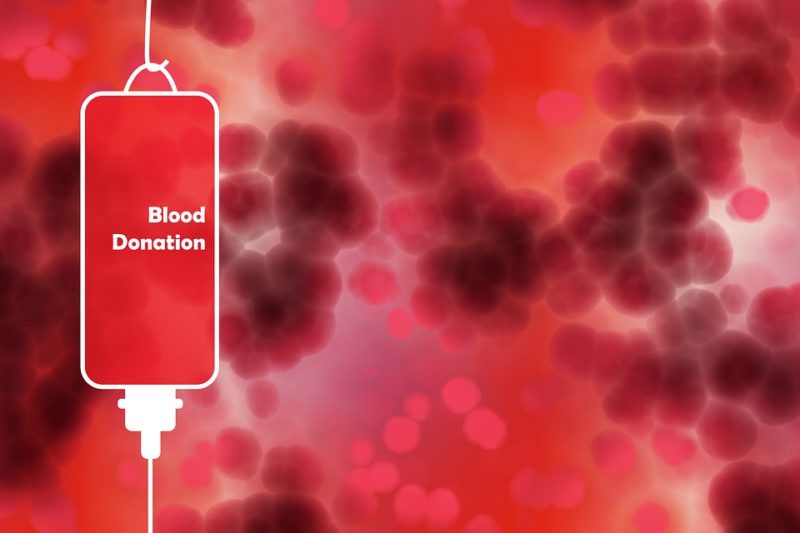Are you contemplating donating blood, then that should include knowing what to eat before blood donation? When considering what you can do to get ready, here’s our take on some of the food that goes into making blood donations easier.
But before that, let us first know the benefits that come with blood donations. For example, those people in car accidents or any other similar incidents may benefit from donated blood. Here’s the most obvious way to go about it.
When it comes to medical conditions such as cancer and heart disease, donated blood is vital. Patients who have undergone major surgery and are still recovering frequently require blood transfusions. This also applies to people who have medical conditions like gastrointestinal bleeding, which can cause them to lose blood.
3 Foods and Drinks To Eat Before Blood Donation
In this section, let us go over the foods and drinks for everyone about to donate blood. When preparing to donate blood, keep in mind that you need to look more closely at the foods you include in your diet. So, what to eat before blood donation? Here are the following:
#1. Water
Be sure to stay hydrated by drinking plenty of water when preparing to donate blood. Water makes up a large part of blood, so staying hydrated is critical. Inadequate hydration can make you dizzy during the test, so make sure to drink plenty of water beforehand.
#2. Iron
Before giving blood, it’s critical to make sure you’re getting enough iron. Hemoglobin, the oxygen-carrying protein in your blood, has a high concentration of iron. So foods rich in iron can help make up for the amount of iron lost after a blood donation by including them regularly in your daily diet.
In any other case, you may have anemia due to iron deficiency. Anemia, which is brought on by an iron deficiency in the blood, can manifest as various symptoms, including fatigue, dizziness, and shortness of breathing.
Before donating blood, you can boost your iron intake in several ways. Beef and chicken are two examples of items. More of those foods should be a part of your daily diet. You can also eat tuna, oysters, haddock. Other than meat, you can get nutritious vegetables like broccoli and spinach and foods rich in fiber like cereals, bread, and pasta. Read how to increase iron for blood donation
#3. Vitamin C
Antioxidants such as vitamin C protect against free radical damage. Meat, chicken, and fish are excellent sources of iron, but your body can also benefit from other food sources, such as plant-based food. This will increase your vitamin C intake. Vitamin C content is also extremely high in fruits like tangerines and oranges, and other citrus fruits. Some other sources of vitamin C include cantaloupe, pineapple, kiwi, mango, watermelon, papaya, raspberries, and blueberry.
Things To Avoid When Preparing To Donate Blood
If you’ve read this far, you should be well-prepared for your blood donation. However, there are a few pitfalls to watch out for. Ensure to keep in mind that you should avoid the following:
#1. Alcohol
Alcohol dehydrates the body, which increases blood pressure. So before donating blood, avoid drinking alcohol for 24 hours at the very least, according to medical professionals. In addition, even though caffeine-containing liquids have less impact on hydration than non-caffeinated ones, many people avoid drinking it because it interferes with iron absorption.
#2. Rich in fat and sugary ingredients
Several infectious diseases will be tested before you donate blood to ensure that these illnesses do not spread to others. Several days before your appointment, stay away from fast food because your blood fat level affects how accurate these tests are.
#3. Aspirin
If you have only signed up to donate your blood platelets, you should avoid taking aspirin about two days or more before the day of the blood donation.
After The Blood Donation
The process is only ten minutes from start to finish. When you’re done, you’ll have donated one bag of blood or about a pint. After giving blood, it’s normal to feel a bit lightheaded or dizzy. Fortunately, this is normal and will go away in a few hours or so.
After giving blood, you’ll probably have to sit inside the waiting room for 15 minutes to be on the safe side. Then, before leaving the clinic, a staff member will make sure everything is going according to plan.
After the blood donation, they’ll provide you with a sweet drink paired with a salty snack to keep you going. As a result, your sugar level will rise, and you will make up any fluid you lose. So for the next 24 hours, drink plenty of water to keep your body hydrated. It may be a good idea to read the 13 super health benefits of blood donation regularly
It’s A Wrap!
In most cases, blood donation is a quick and straightforward process that leaves the donor feeling good about themselves again in no time. As a result, the number of people who donate blood regularly is enormous. Aside from contemplating what to eat before blood donation, talk to the doctor or healthcare providers regarding iron supplements if you plan to donate blood regularly. Through this, your body will be better equipped to deal with regular iron loss. In addition, it may be a good idea to read about what to eat after blood donation and what to eat before plasma donation.

